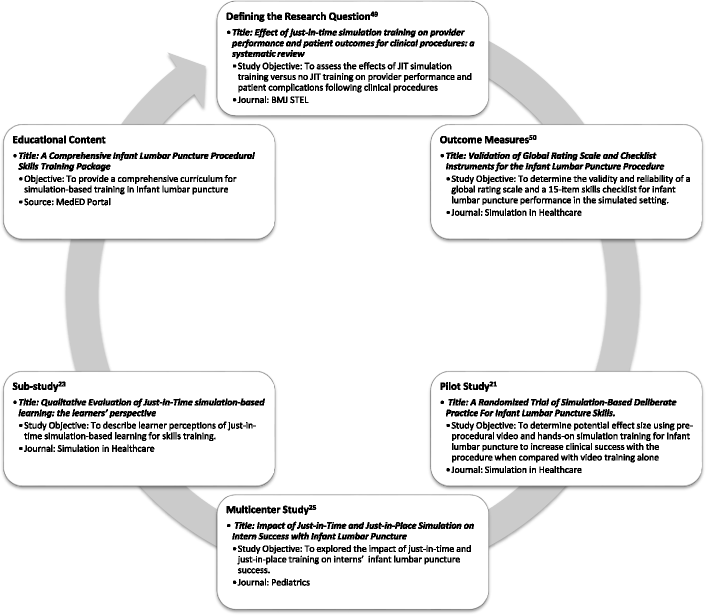Conducting multicenter research in healthcare simulation: Lessons learned from the INSPIRE network
- PMID: 29450007
- PMCID: PMC5806260
- DOI: 10.1186/s41077-017-0039-0
Conducting multicenter research in healthcare simulation: Lessons learned from the INSPIRE network
Abstract
Simulation-based research has grown substantially over the past two decades; however, relatively few published simulation studies are multicenter in nature. Multicenter research confers many distinct advantages over single-center studies, including larger sample sizes for more generalizable findings, sharing resources amongst collaborative sites, and promoting networking. Well-executed multicenter studies are more likely to improve provider performance and/or have a positive impact on patient outcomes. In this manuscript, we offer a step-by-step guide to conducting multicenter, simulation-based research based upon our collective experience with the International Network for Simulation-based Pediatric Innovation, Research and Education (INSPIRE). Like multicenter clinical research, simulation-based multicenter research can be divided into four distinct phases. Each phase has specific differences when applied to simulation research: (1) Planning phase, to define the research question, systematically review the literature, identify outcome measures, and conduct pilot studies to ensure feasibility and estimate power; (2) Project Development phase, when the primary investigator identifies collaborators, develops the protocol and research operations manual, prepares grant applications, obtains ethical approval and executes subsite contracts, registers the study in a clinical trial registry, forms a manuscript oversight committee, and conducts feasibility testing and data validation at each site; (3) Study Execution phase, involving recruitment and enrollment of subjects, clear communication and decision-making, quality assurance measures and data abstraction, validation, and analysis; and (4) Dissemination phase, where the research team shares results via conference presentations, publications, traditional media, social media, and implements strategies for translating results to practice. With this manuscript, we provide a guide to conducting quantitative multicenter research with a focus on simulation-specific issues.
Keywords: Advanced Life Support; Feasibility Testing; Knowledge Translation; Primary Investigator; Site Investigator.
Figures
References
Publication types
LinkOut - more resources
Full Text Sources
Other Literature Sources
Miscellaneous



